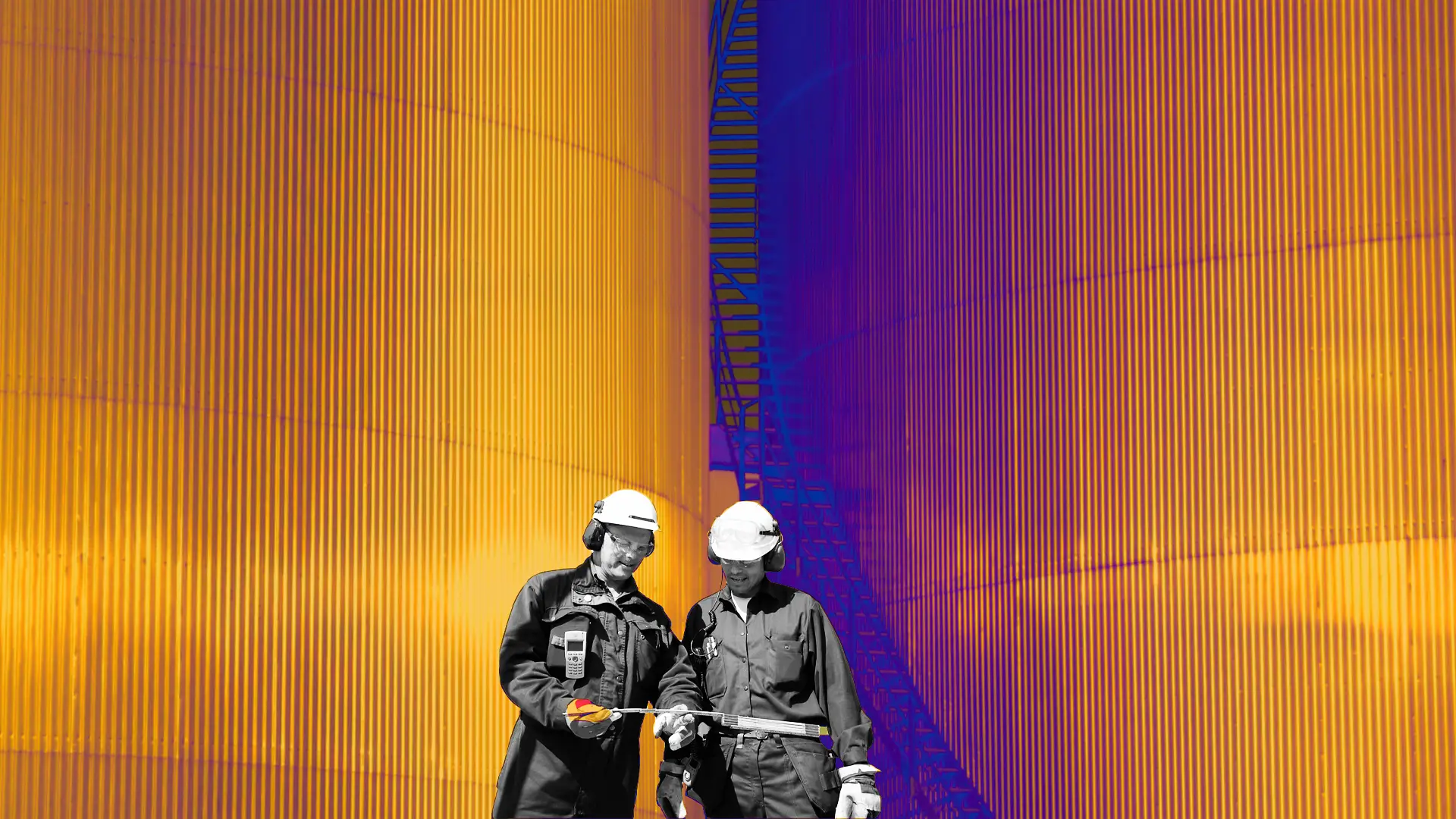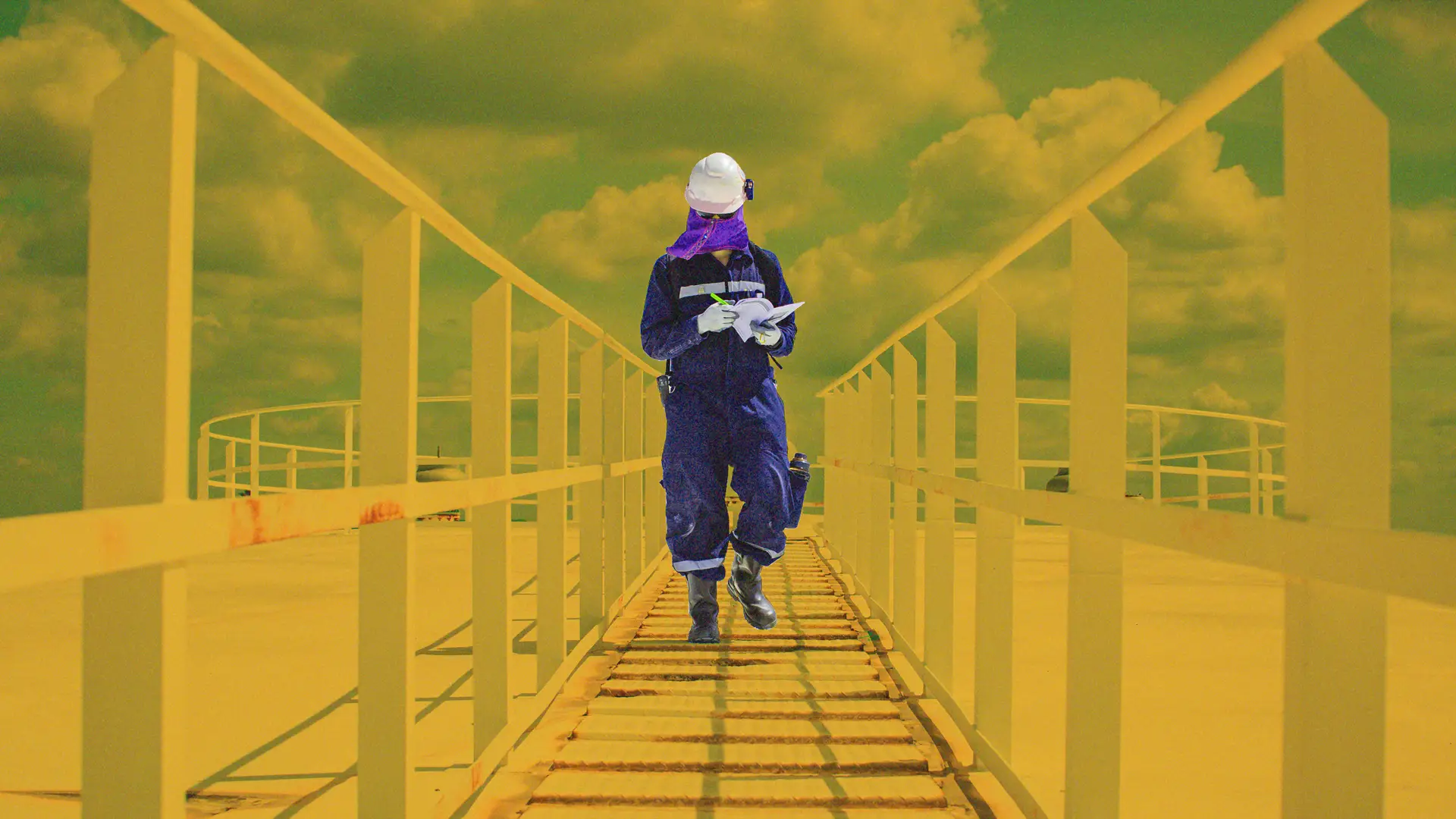

Key Takeaways
- As your people upskill into new roles, new joiners onboard, and subject matter experts begin to retire, energy leaders need the talent, processes, and technology to manage the wealth of knowledge in their organization.
- With so much talent at various stages of their careers, it is natural for different values and attitudes to emerge in the workplace. That type of talent mix change can and should be managed.
- Talent supervisors are juggling recruitment marketing campaigns, knowledge management efforts and change management programs. It is vital to deliver quick wins and wrap up projects to satisfactory completion.
Listen: Three tips for energy leaders to manage the talent transition.
The energy industry has long been a pioneer of innovation. And, as the demand for energy increases and new sources of energy become commercialized, energy leaders focus on bringing out the best thinking in their people. But today's organizational talent profile is more dynamic than ever. Take the demographics, for example, a massive wave of retirement is happening right at the same time as an energy transition is occurring in the broader marketplace. New skill sets are needed, and so is the ability to capture the knowledge of retiring talent.
How can energy leaders channel this dynamic talent mix into team effectiveness that can deliver innovations for competitive advantage? Here are three ideas for managing talent in your energy organization:
Idea 1: Manage the wealth of knowledge in your organization
McKinsey projected that “400,000 employees are expected to retire from the oil and gas sector in the next 10 years.” With waves of subject matter experts preparing for retirement, most organizations already have robust knowledge management programs in place. However, it's important to remember that people have two types of knowledge:
- Explicit knowledge can be easily expressed and put into words or images. This is typically called “information.”
- Tacit knowledge, on the other hand, is a certain know-how that can only be gained through experience and is often imparted informally as “wisdom.” Taken together, explicit and tacit knowledge constitute a person's expertise.
As your people upskill into new roles, new joiners onboard, and subject matter experts begin to retire, energy leaders need the talent, processes, and technology to manage the wealth of knowledge in their organization. For example, many leaders are investigating generative artificial intelligence (gen AI) as a tool in large knowledge repositories. If energy leaders decide to deploy gen AI for knowledge management, they will need talent such as Instructional Designers, Content Strategists, and Knowledge Managers. These types of talent candidates have the skills to “prompt” the gen AI and generate content filled with valuable institutional knowledge.
But content creation is just one side of knowledge management. When it comes to hands-on experience, some companies are exploring use cases of augmented reality (AR) headsets for immersive learning experiences. While the fancy technologies are impressive, energy leaders want talent candidates who can understand the core business. Roles such as a Service Design Lead and User Experience Researcher are necessary to build knowledge experience frameworks that yield practical outcomes in skills and training.
Idea 2: Manage change or it will manage your organization
With so much talent at various stages of their careers, it is natural for different values and attitudes to emerge in the workplace. That type of talent mix change can and should be managed. Proactive change management has a cascading effect of promoting positive organizational behaviors … which leads to productive internal environments and team effectiveness … which increases the probability of innovation.
In fact, change management is a crucial program for keeping talent motivation high during times of change. That's because high motivation is a key predictor of high performance. Energy leaders are aware of this correlation and are really leaning into creative talent to shake things up a bit and bring fresh approaches to creative concepts of change management.
Some examples include:
- Co-sourcing with a creative studio and their Video Producers to create memorable videos that bring the change initiatives “to life.”
- Working with Content Writers to write email updates with “news-style” headlines that grab the reader's attention and keep them scrolling to the end.
- And what about your intranet? Energy leaders are enthusiastic about the talents of a Web Developer who can offer interactive options—such as a quiz or a mix-and-match scenario game for employees to experience different change outcomes.
Whatever creative tactics are taken for a change management plan, the objective is the same: to bring all your people along with the change and ensure that no one is left out.
Idea 3: Manage talent projects for quick wins and satisfactory completion
Talent supervisors are juggling recruitment marketing campaigns, knowledge management efforts, and change management programs. It is vital to deliver quick wins and wrap up projects to satisfactory completion.
In all business units of an energy organization, the pace of innovation is not slowing down. Experienced Project Managers know how to involve Marketing Operations Managers and Data Analysts for insights and timely execution. Project Managers can connect the dots of knowledge among all your talent points—from new joiners attending a training session to a seasoned company employee heading to a retirement party in the break room.
The change is happening within office walls and out in the broader global marketplace. This is an exciting time with new technologies and new ideas all coming in play. And at the heart of it all is your people, your talent. They are your best pathway to competitive success.
Related

Great brand collaborations are the best to strengthen identity.
Design & Experience, Insights & Trends, Marketing & Creative, Beauty and Fashion

Consumer demand and policy are driving EV market growth.
Development & Technology, Insights & Trends, Automotive

Are you missing opportunities to improve health screenings?
Design & Experience, Marketing & Creative, Health





